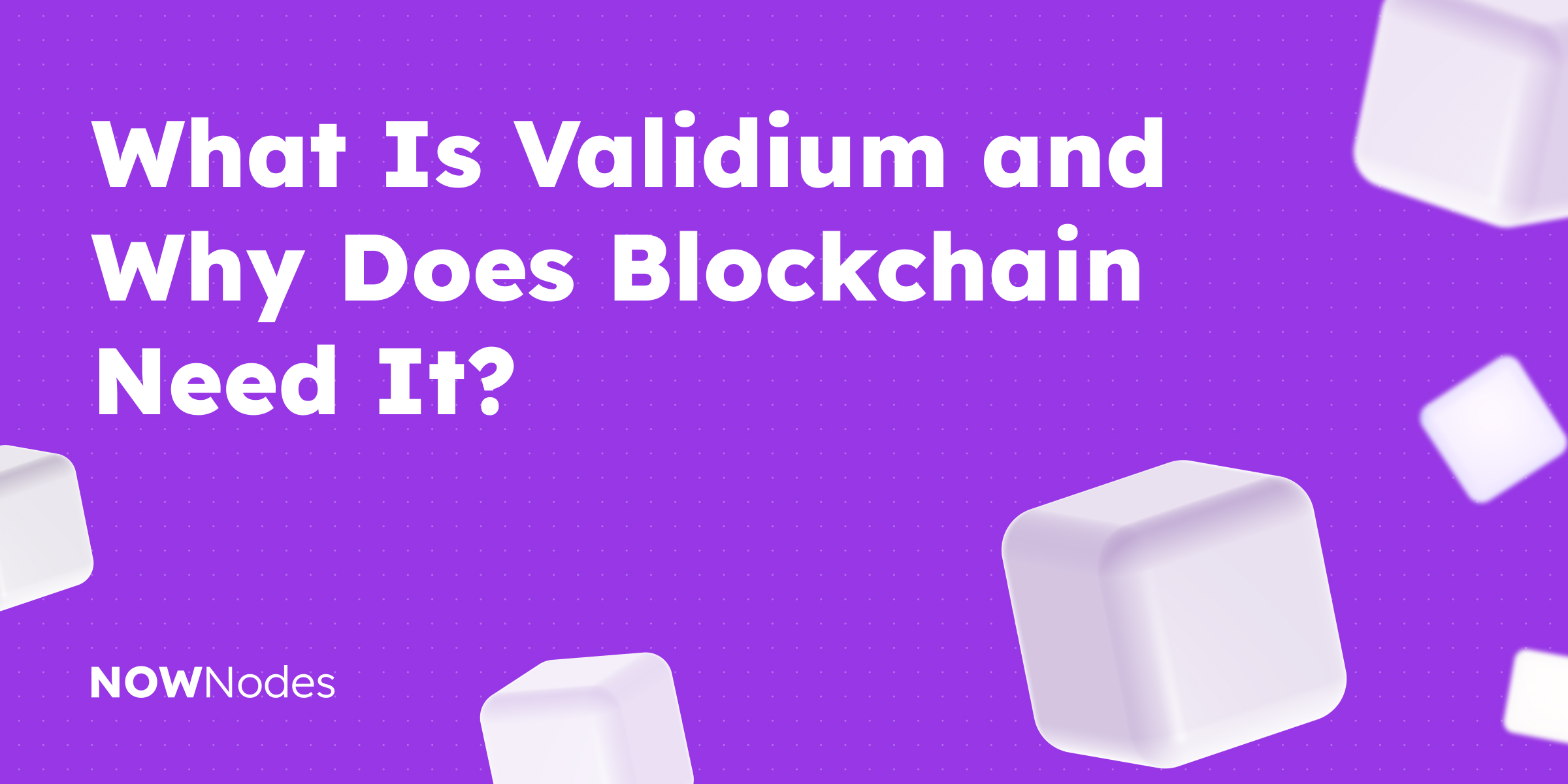Validium is one of the advanced approaches to scaling blockchain networks, especially Ethereum. Its main goal is to make blockchain interactions faster, cheaper, and more private — all without compromising security. At the heart of Validium is the idea that data can be processed off-chain while its correctness is verified on-chain using cryptographic proofs. This compromise increases performance while preserving trust.
How Does Validium Work?
Imagine you’re making a purchase in an online store. Instead of sending all the transaction details to Ethereum (which is costly and slow), Validium processes your transaction off-chain. It then generates a special cryptographic proof that everything was done correctly — and only that proof is submitted to the Ethereum network.
Here’s how the process works:
- A user sends a transaction to a specialized node.
- The operator bundles multiple transactions, verifies them, and generates a validity proof.
- Instead of recording all transactions on Ethereum, only the state root (a cryptographic summary) is stored on-chain.
- Users can deposit or withdraw their funds through smart contracts on Ethereum at any time.
What Are the Advantages of Validium?
Validium offers several key benefits:
- High throughput. This systems can handle thousands of transactions per second — far more than Ethereum’s base layer.
- Lower fees. By storing data off-chain, it reduces network congestion and drastically cuts transaction costs.
- Privacy. Off-chain processing allows sensitive transaction details to remain hidden from the public.
- Fast withdrawals. Validity proofs can be verified quickly, allowing users to retrieve their funds almost instantly.
What’s the Catch?
Like any technology, Validium comes with trade-offs:
- Data availability risks. Since data is stored off-chain, there’s a risk that it could become inaccessible if an operator goes rogue or disappears.
- Partial centralization. Validium relies on operators or incentive mechanisms (like collateral systems) instead of being fully decentralized.
- Limited smart contract support. Validium is best suited for simpler transactions. Complex smart contracts are harder to implement and require more computational resources.
Where Is it Useful?
Validium shines in use cases involving simple, high-volume transactions — such as token swaps, micropayments, in-game purchases, and NFTs. It’s also ideal for enterprise applications where data privacy and compliance are critical.
Validium is especially useful for privacy-focused platforms, where protecting transaction details is a top priority — such as in healthcare, finance, or legal tech.
Real-World Validium Implementations
- StarkEx by StarkWare — a popular platform that can run in either Validium or ZK-Rollup mode.
- zkPorter by Matter Labs — a hybrid solution combining rollups with sharding.
Final Thoughts
Validium isn’t just another buzzword in blockchain — it’s a powerful tool that changes how Ethereum can be used. It enables cheaper, faster, and more private transactions, but also comes with trade-offs related to data availability and trust assumptions. As with any tool, understanding its strengths and limitations is key.
NOWNodes is a blockchain-as-a-service solution that lets users get access to Ethereum Nodes via API. The service provides a high-quality infrastructure that is quick, cost-effective, and reliable. We have Service Quality Standards available for all partners.
ETH is under 24/7 surveillance – their availability and relevance are constantly being monitored. Get access to ETH Nodes NOW:



